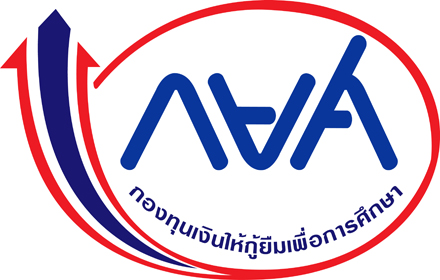The predicament of Student Loan recipients in the Deep South
Like many students in the other regions of the country, students in the three southernmost border provinces whose parents cannot afford their school fees have to resort to the Student Loan Fund to get a loan so that they can realize their dream of wearing a university’s gown and receiving their degrees upon graduation.

But not everyone gets a job immediately after graduation. In fact, many are jobless for several months or, in some cases, for a year or more because there are so many of them with a degree in social science and without any working skill which is required in the job market.
Hence, the expectation of the management of the Student Loan Fund that they will get paid by the newly-graduated students for the loans they received has been dashed because many of the graduates are unemployed. Even those who are employed cannot afford to pay because their salaries are low and they have several mouths to feed.
When the economy is good, the Fund is not so worried because it still receives funding from the government. But when the economy is down as is the case now, the Fund feels the heat and starts getting tough with the indebted students with several of them facing lawsuits allegedly for their refusal to repay the loans.
Legal actions against the former students will only put them into greater trouble and the Fund itself may not get repaid. Former secretary-general of the Southern Border Provinces Administration Centre and now an advisor to the Prime Minister’s Office, Pol Col Thawee Sodsong, recently suggested the Fund to resort to compromise approach by using the administrative measure considering the fact that most loan recipients are poor, many of them are jobless or if they are employed, their pay is low.
The followings are some samples of the loan recipients in the deep South who cannot afford to pay the Fund unless the terms are eased.
Here is the case of a Ms Romuela in Narathiwat who is facing a lawsuit from the Fund. She recently wrote a letter asking for sympathy and understanding of her problem.
Ms Romuela said in the letter that she had no intention whatsoever to evade the loan repayment but she was not ready yet because she had to support the education of her younger brothers and sisters. Also, she added that she would not want her 84-year old guarantor to be in trouble because of her. She wanted the loan repayment to be postponed and the interest waived.
Another loan recipient, a Mrs Nithima, in Narathiwat, said that although she is employed she receives only 4,000 baht a month while her husband who works in the same place is also paid 4,000 baht a month.
With two more mouths to feed, Mrs Nithima said their combined income was hardly enough to cover the household expenses not mentioning loan repayments. She admitted that she was invited to be informed about her obligation to repay the loan by the Fund officials who, she said, did not listen to her explanation about why she could not settle the debt.
Another loan recipient in Narathiwat, Mrs Nurakatini, disclosed that her debt with the Fund now amounts to 300,000 baht after her graduation eight years ago. She now works at a school as a teacher while her husband works as a rubber tapper.
She said that she was shocked when she received a court warrant recently to appear before the court to hear the lawsuit against her and didn’t know what to do.
Mrs Nurakatini said she had a mother, a sister and two children to attend to and could hardly to repay the loan. But if the loan repayment is reduced to 300-500 baht a month, that would be a great relief, she added.
Moreover, the interest charge on student loans is a sensitive issue in the deep South because the Koran forbids interest charge. Hence, the lawsuits brought against the loan recipients to repay the debt plus interest thereon may cast the loan project in a negative light among the Muslim community in the restive region.
All the complaints from the loan recipients especially from the Deep South need to be considered so that a solution which is fair to both sides, especially to the poor debtors, can be worked out.
